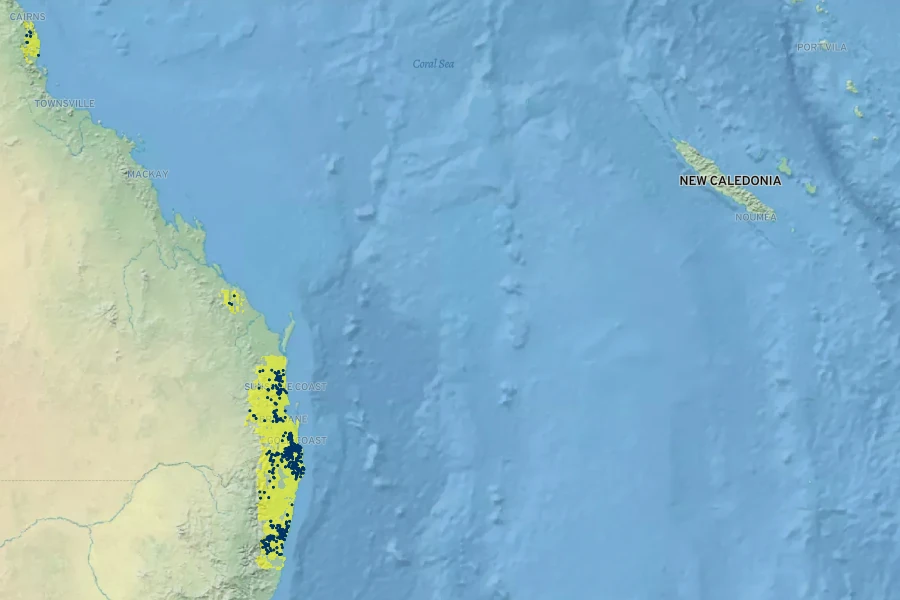Small Bolwarra
/
(Eupomatia bennettii)
Small Bolwarra (Eupomatia bennettii)
/

Linda Groom
CC BY 4.0
Image By:
Linda Groom
Recorded By:
Copyright:
CC BY 4.0
Copyright Notice:
Photo by: Linda Groom | License Type: CC BY 4.0 | License URL: http://creativecommons.org/licenses/by/4.0/ | Rights Holder: Linda Groom | Publisher: iNaturalist | Date Created: 2022-10-09T15:02:13-07:00 |










Summary
Eupomatia bennettii, commonly known as Small Bolwarra, is an evergreen shrub native to the subtropical rainforests of eastern Australia, particularly north of the Nambucca River to Queensland. It is typically found in the understory of moist gullies and near streams, often associated with the diverse flora of closed forests. This plant usually reaches heights of 28 inches to 55 inches (70 to 140 cm) and has a bushy habit. The leaves of Small Bolwarra are hairless, reverse lanceolate, and range from 3 to 8 inches (7.5 to 20 cm) long, with a glossy green appearance.
Small Bolwarra is noted for its attractive cream and red flowers that bloom in spring, which are followed by obconical berries that turn yellowish as they mature. These features make it an appealing choice for shaded garden areas, where it can be used as an understory plant or for border planting. In cultivation, it prefers rich, well-drained soils and thrives in part shade to full shade conditions, mimicking its natural rainforest habitat. While it is not commonly grown, its unique flowers and fruit can add exotic interest to a garden. It requires consistent moisture and does not tolerate drought well. There are no widely recognized cultivars of this species, and it is generally free from major pests and diseases. However, it may be sensitive to root disturbance and should be planted in a location where it can remain undisturbed.CC BY-SA 4.0
Small Bolwarra is noted for its attractive cream and red flowers that bloom in spring, which are followed by obconical berries that turn yellowish as they mature. These features make it an appealing choice for shaded garden areas, where it can be used as an understory plant or for border planting. In cultivation, it prefers rich, well-drained soils and thrives in part shade to full shade conditions, mimicking its natural rainforest habitat. While it is not commonly grown, its unique flowers and fruit can add exotic interest to a garden. It requires consistent moisture and does not tolerate drought well. There are no widely recognized cultivars of this species, and it is generally free from major pests and diseases. However, it may be sensitive to root disturbance and should be planted in a location where it can remain undisturbed.CC BY-SA 4.0
Plant Description
- Plant Type: Shrub
- Height: 1-3 feet
- Width: 1-2 feet
- Growth Rate: Slow
- Flower Color: Green, White
- Flowering Season: Summer, Spring
- Leaf Retention: Evergreen
Growth Requirements
- Sun: Part Shade, Full Shade
- Drainage: Medium, Slow
Common Uses
Low Maintenance, Potted Plant, Water Garden
Natural Habitat
Subtropical rainforest understory, often near streams or in moist gullies
Other Names
Common Names: Small Bolwarra
Scientific Names: Eupomatia bennettii, Eupomatia laurina
GBIF Accepted Name: Eupomatia bennettii
